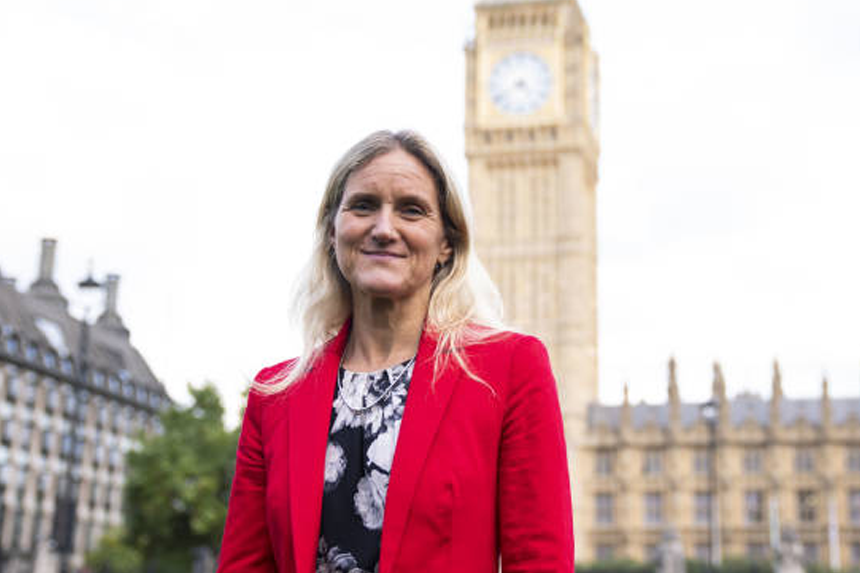A new bill proposing the legalisation of assisted death for terminally ill adults in England and Wales has reignited the intense debate on the issue. Under the proposed legislation, sick terminally ill adults expected to die within six months would be able to request medical assistance to end their lives, subject to strict safeguards.
- What Safeguards Are Included in the Bill?
- When Will Parliament Debate and Vote on the Bill?
- What Are the Requirements for Assisted Dying Under the Proposed Law?
- How Will the Assisted Dying Process Work?
- Why Do Some Support the Bill?
- What Are the Concerns of Opponents?
- Should Palliative Care Be the Focus Instead?
- What Happens Next for the Bill?
What Safeguards Are Included in the Bill?
Labour MP Kim Leadbeater, who introduced the Terminally Ill Adults (End of Life) Bill, emphasised the strict nature of the safeguards included. She described it as having “the strictest safeguards anywhere in the world,” adding that the legislation requires that two independent doctors must confirm that the person is terminally ill, has made the request voluntarily, and has the mental capacity to make such a decision. In addition, a High Court judge must approve the request.
However, opponents have raised concerns about the potential for vulnerable individuals to feel pressured into ending their lives. “We need to ensure that every decision is made freely, without external pressure,” Leadbeater said.
When Will Parliament Debate and Vote on the Bill?
The proposed bill will be debated in Parliament, with MPs set to vote on the matter on November 29. This will mark the first time since 2015 that the House of Commons has voted on assisted dying. That year, MPs rejected proposals to allow terminally ill adults to end their lives with medical assistance.
If the bill passes the initial vote, it will undergo further scrutiny in Parliament, and amendments could be made before it is approved by both the House of Commons and the House of Lords. The government has remained neutral, allowing MPs to vote according to their views rather than adhere to the party line.
What Are the Requirements for Assisted Dying Under the Proposed Law?
The bill outlines several criteria for eligibility:
- The person must be over 18, a resident of England or Wales, and have been registered with a GP for at least 12 months.
- They must have the mental capacity to decide on ending their life.
- They must express a “clear, settled, and informed” desire to end their life, free from coercion, at every stage of the process.
Additionally, a minimum of seven days must pass between the two doctors’ assessments, and 14 days must pass after the judge’s ruling unless the person’s death is imminent. The person may change their mind at any point during the process, and no doctor is required to participate.
How Will the Assisted Dying Process Work?
Under the proposed law, if the individual meets all the requirements and safeguards, they would be allowed to self-administer the substance used to end their life. While a doctor could prepare or assist in administering the substance, the individual must ultimately ingest it.
It would remain illegal for anyone, including doctors, to end a person’s life. The bill also makes it a criminal offence to pressure someone into requesting assisted death, with a penalty of up to 14 years in prison.
Why Do Some Support the Bill?
Supporters of the bill, including broadcaster Dame Esther Rantzen, argue that terminally ill individuals should have the right to choose how and when they die to avoid unnecessary suffering. Rantzen, who has terminal cancer and has joined Dignitas in Switzerland in anticipation of the law change, described the bill as “wonderful” and said it would prevent more people from enduring “agonising deaths.”
“Unless my current medication turns out to be ‘miraculous,’ there’s no way an assisted dying law can come into force in time for me,” she said, calling for an end to unnecessary suffering.
Elise Burns, a terminally ill woman from Kent with breast cancer, expressed similar concerns, stating, “I’m not scared to die, but I am scared of a bad death—a long, drawn-out, brutal, horrific death. That terrifies me. But also, I’m concerned for my family and friends. I don’t want them to see me go through that.”
Conservative MP Kit Malthouse, co-sponsor of the bill, explained that the legislation is tightly drawn with safeguards to prevent abuse, such as a period of reflection for individuals to consider their decision. “People wanted to see a bill that was well drafted, tightly drawn, with safeguards in place requiring third-party validation,” he said, referring to the bill’s provisions for independent assessments.
What Are the Concerns of Opponents?
Opponents of assisted dying have voiced concerns that the law could put vulnerable people at risk of feeling pressured to end their lives out of fear of becoming a burden to others. These critics argue that the focus should be on improving palliative care rather than offering assisted dying as an option.
Dr. Gordon Macdonald, CEO of Care Not Killing, said, “The safest law is the one we currently have.” He also expressed concern that the bill is being rushed, which could overlook systemic issues in the UK’s palliative care system.
Dr. Gillian Wright, a former palliative care doctor, raised concerns about the “arbitrary” criteria for defining terminal illness. “It’s difficult at times to determine that someone has six months to live,” she said. “Why should those with nine or 10 months to live not also have access [to assisted dying]? Perhaps they would suffer more.”
“You can see that, right at the beginning, with how this bill is designed, it sets you up for extension because it will almost immediately be challenged.”
Should Palliative Care Be the Focus Instead?
Some politicians, including Conservative MP Danny Kruger, have argued that efforts should be focused on improving palliative care rather than legalising assisted dying. “Due to innovations in medicine, pain relief, and treatment, it should not be necessary for anybody to die in unbearable, physical agony anymore,” he said. He warned that even with safeguards in place, the bill could lead to situations where medical professionals merely “rubber-stamp” decisions.
Health Secretary Wes Streeting, who plans to vote against the bill, echoed this sentiment, raising concerns about the quality of end-of-life care. “We need to improve palliative care and ensure that people have a real choice at the end of their lives,” he said.
In response, Leadbeater argued that improving palliative care should run in parallel with offering the option of assisted dying. “This is not about improving palliative care or giving people the choice at the end of life,” she said. “We have to do both.”
What Happens Next for the Bill?
If Parliament passes the bill, Leadbeater stressed that a “period of implementation” would be necessary, which could last up to two years. This would allow time for training medical professionals and developing guidelines to ensure the law is applied correctly and ethically.
The debate on assisted dying is set to continue, and the outcome of the upcoming vote will be closely watched by supporters and opponents alike. The decision could mark a turning point in how the UK handles end-of-life care and personal autonomy.
Rachel Reeves Budget Marks a Departure from Liz Truss’ Mini-Budget








